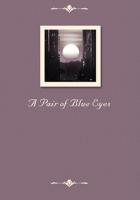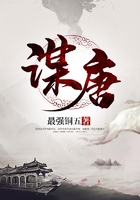Yet it was not an easy task or an enviable position.He was obliged to divorce himself from his political party as well as keep clear of the wild schemes of impractical enthusiasts, too practical "contractors," and the still more helpless bigotry of Christian civilizers, who would have regenerated the Indian with a text which he did not understand and they were unable to illustrate by example.He had expected the opposition of lawless frontiersmen and ignorant settlers--as roughly indicated in the conversation already recorded; indeed he had felt it difficult to argue his humane theories under the smoking roof of a raided settler's cabin, whose owner, however, had forgotten his own repeated provocations, or the trespass of which he was proud.But Atherly's unaffected and unobtrusive zeal, his fixity of purpose, his undoubted courage, his self-abnegation, and above all the gentle melancholy and half-philosophical wisdom of this new missionary, won him the respect and assistance of even the most callous or the most skeptical of officials.The Secretary of the Interior had given him carte blanche; the President trusted him, and it was said had granted him extraordinary powers.Oddly enough it was only his own Californian constituency, who had once laughed at what they deemed his early aristocratic pretensions, who now found fault with his democratic philanthropy.That a man who had been so well received in England--the news of his visit to Ashley Grange had been duly recorded--should sink so low as "to take up with the Injins" of his own country galled their republican pride.A few of his personal friends regretted that he had not brought back from England more conservative and fashionable graces, and had not improved his opportunities.Unfortunately there was no essentially English policy of trusting aborigines that they knew of.
In his gloomy self-scrutiny he had often wondered if he ought not to openly proclaim his kinship with the despised race, but he was always deterred by the thought of his sister and her husband, as well as by the persistent doubt whether his advocacy of Indian rights with his fellow countrymen would be as well served by such a course.And here again he was perplexed by a singular incident of his early missionary efforts which he had at first treated with cold surprise, but to which later reflection had given a new significance.After Gray Eagle's revelation he had made a pilgrimage to the Indian country to verify the statements regarding his dead father,--the Indian chief Silver Cloud.Despite the confusion of tribal dialects he was amazed to find that the Indian tongue came back to him almost as a forgotten boyish memory, so that he was soon able to do without an interpreter; but not until that functionary, who knew his secret, appeared one day as a more significant ambassador."Gray Eagle says if you want truly to be a brother to his people you must take a wife among them.He loves you--take one of his!" Peter, through whose veins--albeit of mixed blood--ran that Puritan ice so often found throughout the Great West, was frigidly amazed.In vain did the interpreter assure him that the wife in question, Little Daybreak, was a wife only in name, a prudent reserve kept by Gray Eagle in the orphan daughter of a brother brave.But Peter was adamant.Whatever answer the interpreter returned to Gray Eagle he never knew.But to his alarm he presently found that the Indian maiden Little Daybreak had been aware of Gray Eagle's offer, and had with pathetic simplicity already considered herself Peter's spouse.During his stay at the encampment he found her sitting before his lodge every morning.Agirl of sixteen in years, a child of six in intellect, she flashed her little white teeth upon him when he lifted his tent flap, content to receive his grave, melancholy bow, or patiently trotted at his side carrying things he did not want, which she had taken from the lodge.When he sat down to work, she remained seated at a distance, looking at him with glistening beady eyes like blackberries set in milk, and softly scratching the little bare brown ankle of one foot with the turned-in toes of the other, after an infantine fashion.Yet after he had left--a still single man, solely though his interpreter's diplomacy, as he always believed--he was very worried as to the wisdom of his course.Why should he not in this way ally himself to his unfortunate race irrevocably?
Perhaps there was an answer somewhere in his consciousness which he dared not voice to himself.Since his visit to the English Atherlys, he had put resolutely aside everything that related to that episode, which he now considered was an unhappy imposture.
But there were times when a vision of Lady Elfrida, gazing at him with wondering, fascinated eyes, passed across his fancy; even the contact with his own race and his thoughts of their wrongs recalled to him the tomb of the soldier Atherly and the carven captive savage supporter.He could not pass the upright supported bier of an Indian brave--slowly desiccating in the desert air--without seeing in the dead warrior's paraphernalia of arms and trophies some resemblance to the cross-legged crusader on whose marble effigy SHE had girlishly perched herself as she told the story of her ancestors.Yet only the peaceful gloom and repose of the old church touched him now; even she, too, with all her glory of English girlhood, seemed to belong to that remote past.She was part of the restful quiet of the church; the yews in the quaint old churchyard might have waved over her as well.














